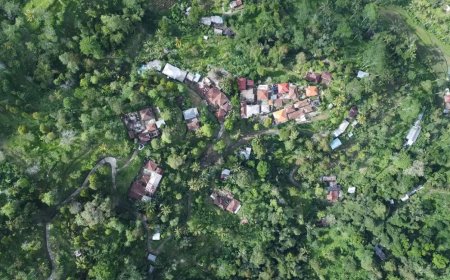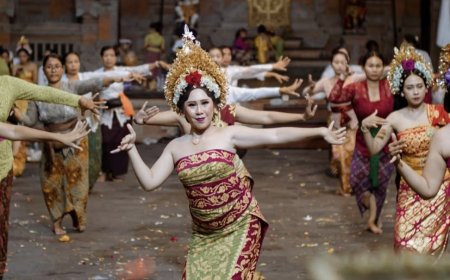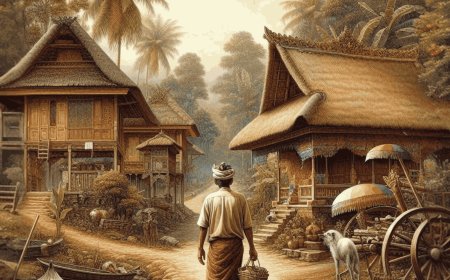Sagung Ayu Wah: Tabanan Heroine, Leader of the Resistance to Dutch Colonization in Balikan Wangaya
In this heroic tale, we witness the unforgettable struggle of Sagung Ayu Wah, a courageous woman from the Tabanan kingdom, who led a fierce resistance against Dutch colonization in the early 20th century. After the fall of the Kingdom of Badung to the Dutch, Sagung Ayu Wah led her loyal followers to the village of Wangayagde to escape and prepare for war. Guided by a knight's spirit and fervent patriotism, Sagung Ayu Wah led the people of Wangayagde against colonial forces, creating the "Balikan Wangaya" movement. Despite facing physical defeat and a tragic end, this resistance asserts that a woman like Sagung Ayu Wah can be a brave leader, leaving behind an inspirational legacy of struggle for Bali and generations to come.
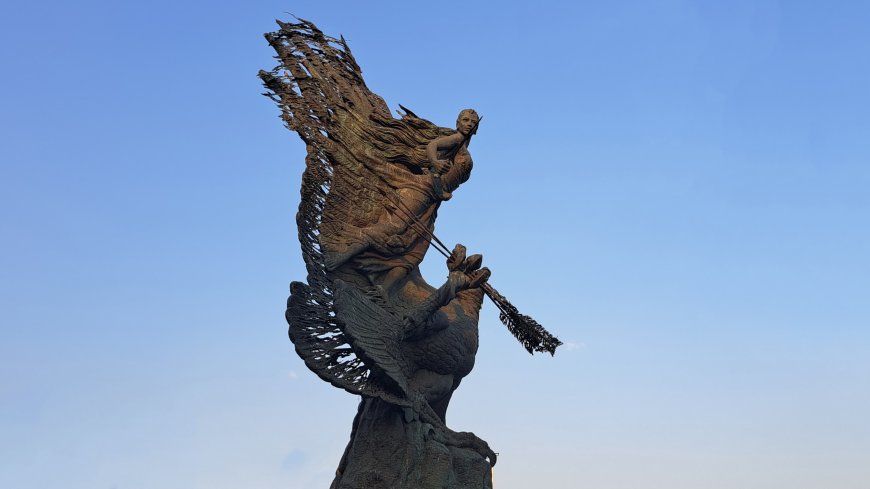
In the pages of history filled with struggle, one unforgettable chapter is the heroic tale of Sagung Ayu Wah, a female warrior from the Tabanan kingdom who led a fierce resistance against Dutch colonization in the early 20th century.
On September 20, 1906, the Kingdom of Badung fell to the Dutch, shifting colonial attention to their neighboring kingdom, Tabanan. The Dutch assault on Tabanan began on September 25, 1906, creating a dire situation where the relatively small colonial forces quickly subdued Tabanan with minimal resistance.
Amidst the chaos, Sagung Ayu Wah, the youngest daughter of the late Tabanan King, along with her loyal followers, decided to flee. Their goal was to seek refuge and assistance in the village of Wangayagde, where Village Chief Pasek Kubayan provided sanctuary and a hiding place.
Sagung Ayu Wah, despite being a woman, inherited the warrior spirit of her father. She not only possessed the courage to defy the colonizers but also a burning patriotism within her soul.
Wangayagde, as an autonomous region within the Tabanan kingdom, demonstrated high solidarity in facing colonialism. Led by Sagung Ayu Wah, the people of Wangayagde united to seek revenge and resist Dutch colonization, marking the beginning of what would later be known as “Balikan Wangaya.”
In December 1906, the forces of Wangayagde prepared for resistance. With the assistance of Pasek Kubayan, they meticulously prepared themselves. The attack commenced with high spirits, but they faced the Dutch forces ready for combat. Despite using sacred relics from Pura Luhur Batukaru, the forces of Wangayagde encountered significant challenges.
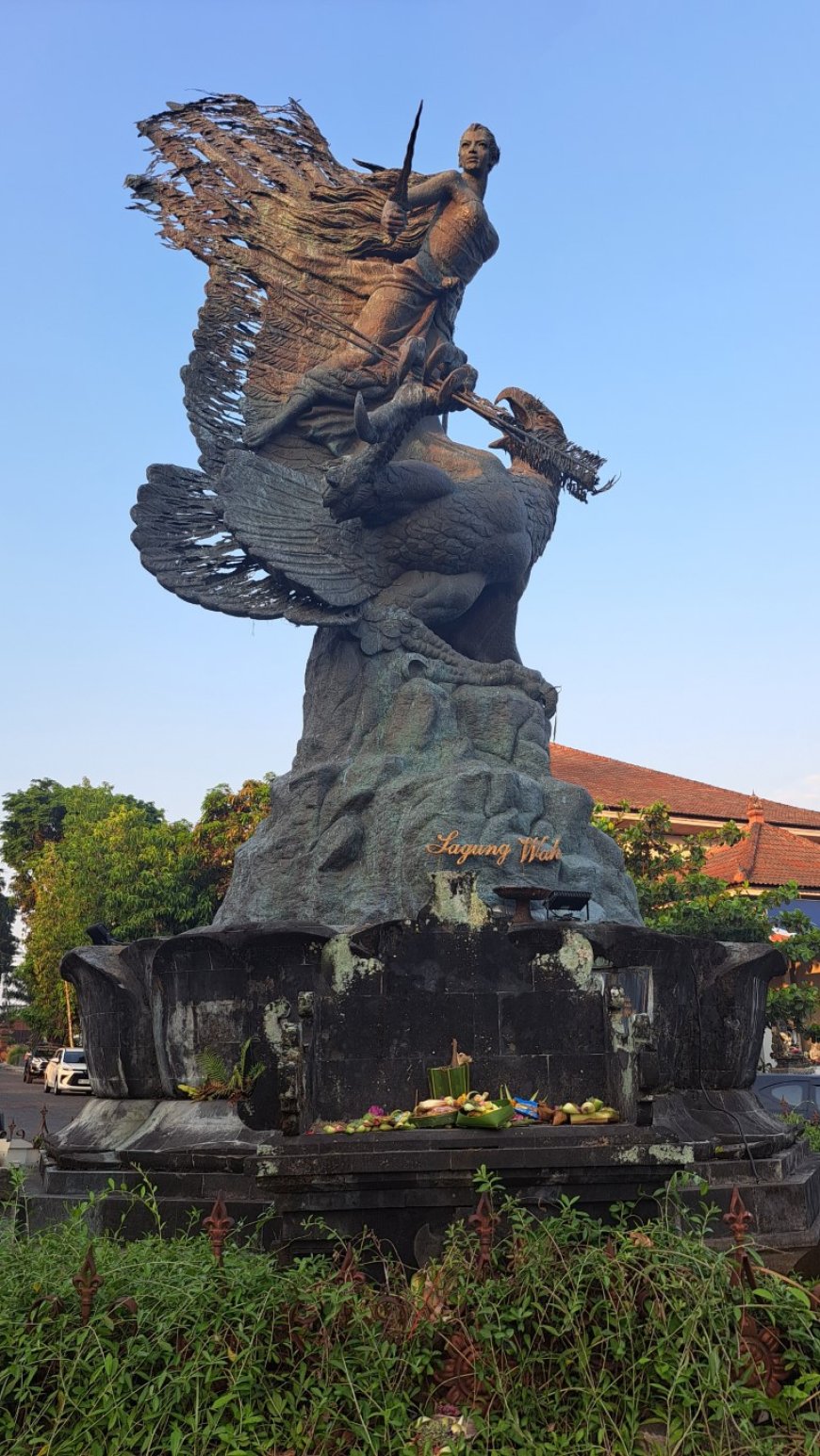
Fierce battles erupted, and the Wangayagde forces had to contend with the modern weapons of the Dutch. Sagung Ayu Wah, the heroine of the resistance, was captured by colonial forces and exiled to the island of Lombok, where she eventually passed away. Though tragic, the sacrifices and resistance shown by Sagung Ayu Wah and the Wangayagde forces remained an unforgettable inspiration.
The resistance of Wangayagde not only depicted the spirit of the people's resistance against colonization but also showcased that a woman could be a courageous leader. Sagung Ayu Wah's story, though concluding bitterly, served as evidence that the spirit of resistance can pave the way to freedom and honor.
The resistance of Wangayagde left a legacy of struggle that must be commemorated. Figures like Pasek Kubayan, Pan Renteh, Pan Tembeh, and others involved in the resistance were either exiled or lost their lives, yet the spirit of resistance endured. Wangayagde, along with many other villages in Bali, continues to commemorate these events as an integral part of their identity and history.
The story of the Wangayagde resistance under the leadership of Sagung Ayu Wah reflects the spirit of the Balinese people’s struggle against Dutch colonization. Despite facing physical defeat, the legacy of the spirit of resistance left by Sagung Ayu Wah and the Wangayagde forces lives on, providing inspiration for generations to come. By recalling these events, we not only honor these heroes but also learn from them to safeguard and uphold the freedom and dignity of our homeland.





